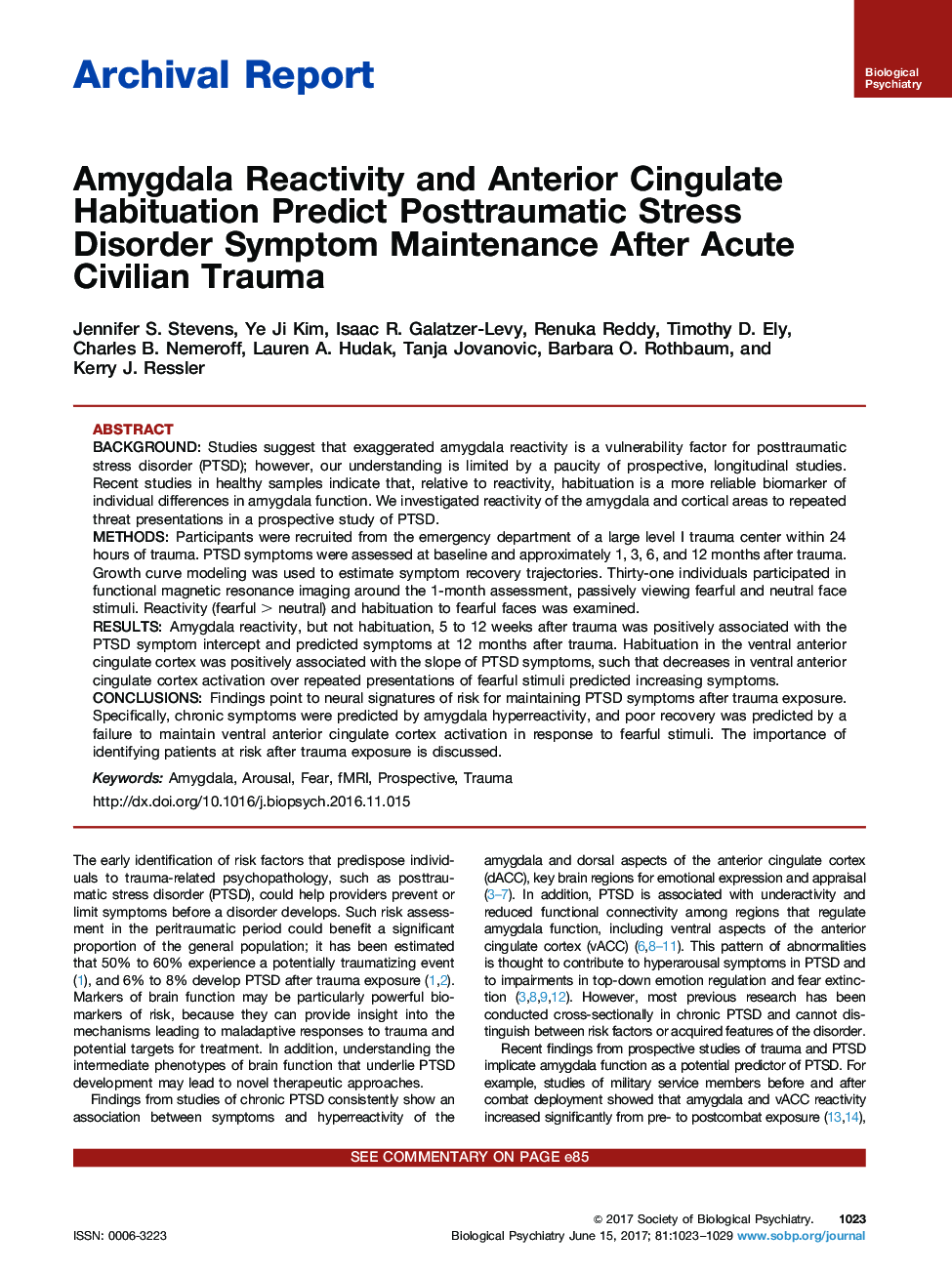| کد مقاله | کد نشریه | سال انتشار | مقاله انگلیسی | نسخه تمام متن |
|---|---|---|---|---|
| 5720424 | 1411315 | 2017 | 7 صفحه PDF | دانلود رایگان |
BackgroundStudies suggest that exaggerated amygdala reactivity is a vulnerability factor for posttraumatic stress disorder (PTSD); however, our understanding is limited by a paucity of prospective, longitudinal studies. Recent studies in healthy samples indicate that, relative to reactivity, habituation is a more reliable biomarker of individual differences in amygdala function. We investigated reactivity of the amygdala and cortical areas to repeated threat presentations in a prospective study of PTSD.MethodsParticipants were recruited from the emergency department of a large level I trauma center within 24 hours of trauma. PTSD symptoms were assessed at baseline and approximately 1, 3, 6, and 12 months after trauma. Growth curve modeling was used to estimate symptom recovery trajectories. Thirty-one individuals participated in functional magnetic resonance imaging around the 1-month assessment, passively viewing fearful and neutral face stimuli. Reactivity (fearful > neutral) and habituation to fearful faces was examined.ResultsAmygdala reactivity, but not habituation, 5 to 12 weeks after trauma was positively associated with the PTSD symptom intercept and predicted symptoms at 12 months after trauma. Habituation in the ventral anterior cingulate cortex was positively associated with the slope of PTSD symptoms, such that decreases in ventral anterior cingulate cortex activation over repeated presentations of fearful stimuli predicted increasing symptoms.ConclusionsFindings point to neural signatures of risk for maintaining PTSD symptoms after trauma exposure. Specifically, chronic symptoms were predicted by amygdala hyperreactivity, and poor recovery was predicted by a failure to maintain ventral anterior cingulate cortex activation in response to fearful stimuli. The importance of identifying patients at risk after trauma exposure is discussed.
Journal: Biological Psychiatry - Volume 81, Issue 12, 15 June 2017, Pages 1023-1029
